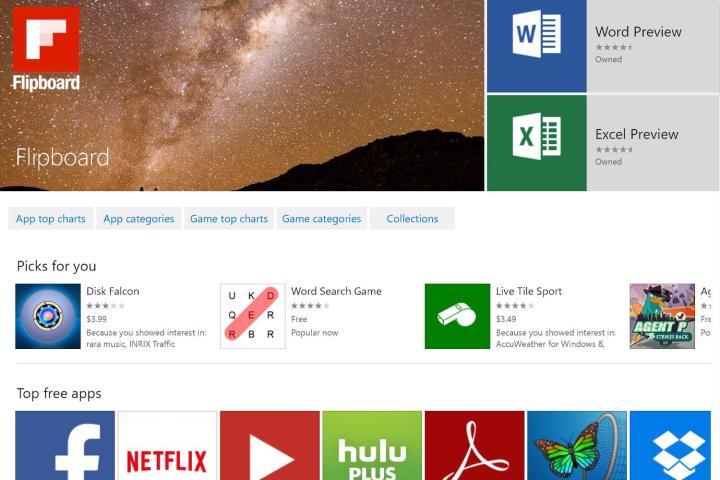
Developers will be able to run their apps remotely from their existing Web infrastructure without having to make any modifications. In addition, Microsoft will providing a way for these web apps to work outside the “browser sandbox” that a web app is normally contained in. A web app installed through the Store will have special permissions that other web apps lack. These permissions include the ability to access and present Windows notifications, launch a full-screen mode, and integrate with Cortana.
Related: Five reasons why the Windows Store is a complete mess
This move should drastically lower the barrier to entry for web app developers. Previously, developing for the Store meant creating a whole new Windows application, but this move will make only minimal changes necessary to gain a place in the storefront. Large organizations may also find this new approach appealing because many use web apps as part of their internal platforms, and this change could make it easier for employees to find and install appropriate software.
Microsoft’s Build conference, slated to begin on April 29 in San Francisco, will provide more answers to questions surrounding Windows 10. Until then, Gallo ends his blog post by encouraging web developers to utilize the Windows platform to create universal apps.
Editors' Recommendations
- Scores of people are downgrading back to Windows 10
- Microsoft finally kills this legacy Windows app — for good this time
- Windows 11 tips and tricks: 8 hidden settings you need to try
- Windows 11 vs. Windows 10: finally time to upgrade?
- Beware! The latest Windows 11 update might crash your PC



